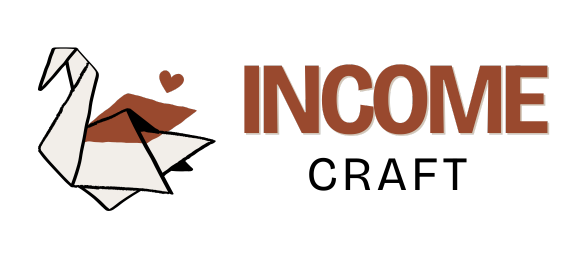To achieve financial freedom, start by setting clear financial goals that resonate with your values. Create a budget to track income and expenses, ensuring you prioritize essential costs. Build an emergency fund with three to six months of expenses and focus on paying off high-interest debt. Regularly reassess your goals to stay aligned with your financial journey. Staying informed about financial trends can also aid your progress. There’s so much more to explore as you work toward this objective.
Set Clear Financial Goals
To achieve financial freedom, you must start by setting clear financial goals that align with your values and aspirations. Begin by identifying what truly matters to you—be it retirement, education, or travel. Break these larger goals into specific, measurable targets to track your progress. For instance, aim to save a certain amount each month or reduce debt by a specific percentage within the year. It’s critical to create deadlines for these goals, providing a sense of urgency and motivation. Regularly review and adjust your goals as needed, ensuring they remain relevant to your evolving circumstances. Remember, clarity in your financial objectives will guide your decision-making and help you stay focused on achieving true financial independence.
Create a Budget
Creating a budget is one of the most effective steps toward achieving financial freedom. A budget gives you a clear picture of your income and expenses, allowing you to allocate resources wisely. Start by listing all your income sources and fixed expenses, such as rent or mortgage payments. Next, account for variable expenses like groceries and entertainment. Set limits to guarantee you don’t overspend in any category. Additionally, prioritize your financial goals, whether it’s saving for retirement or paying off debt. Regularly review and adjust your budget to reflect any changes in your financial situation. By sticking to your budget, you take control of your finances, paving the way toward greater financial stability and freedom.
Recommended Items
Discover our top picks to boost your financial savvy and online income—feel free to explore!
Books
Track Your Expenses
After establishing a budget, the next step in your financial journey is to track your expenses. This process involves recording every transaction you make—be it for groceries, entertainment, or utilities. By doing so, you gain insights into your spending habits and can identify areas where you might overspend. Utilize apps or spreadsheets for ease and accuracy. Regularly reviewing your expenses against your budget will help you stay accountable and adjust your habits as necessary. Aim for consistency; tracking just a couple of days won’t reveal your true financial picture. Ultimately, this practice empowers you to make informed decisions, ensuring you’re on the right path towards achieving your financial goals and cultivating a mindset of financial awareness.
Build an Emergency Fund
Building an emergency fund is essential for financial stability, and it can act as your safety net during unexpected challenges. Aim to save three to six months’ worth of living expenses to adequately cover situations like job loss or medical emergencies. Start by evaluating your monthly expenditures, which you’ve already tracked, to determine how much you need. Set a monthly savings goal to build this fund gradually, making sure to separate it from your regular spending account. Consider using a high-yield savings account for better interest rates while keeping your money accessible. Regularly review and adjust your fund as your expenses or financial situation changes. By prioritizing an emergency fund, you’re laying the groundwork for a more secure financial future.
Pay Off Debt
Paying off debt is a critical step toward achieving financial freedom and enhancing your overall financial health. Begin by evaluating all your debts, noting interest rates and payment terms. Prioritize high-interest debts, as they compound quickly, costing you more over time. Create a budget that allocates a portion of your income specifically for debt repayment, ensuring you stay on track. Consider strategies like the avalanche method, where you tackle highest-interest debts first, or the snowball method, focusing on smaller debts for quick wins. Additionally, avoid accumulating new debt during this process. By consistently paying off your debts, you not only reduce financial stress but also free up resources for savings and investments, paving the way toward a more secure financial future.
Step-by-Step Guide to Financial Freedom
Understand Your Income
Understanding your income is essential for effective financial planning and achieving financial freedom. Start by identifying all your income sources, including salary, bonuses, freelance work, and passive income streams. Next, determine your total monthly income, which provides a clear picture of your financial landscape. Analyze the consistency of your income—knowing whether it’s fixed or variable—allows you to budget more effectively. Regularly track any changes in your income, as fluctuations can impact your financial goals. Develop a detailed income statement to visualize where your money comes from and how it relates to your expenses. By grasping these elements, you’ll be better equipped to make informed decisions and create a financial plan that leads to true freedom.
Increase Your Earnings
While you may feel comfortable with your current income, actively seeking ways to increase your earnings can open up greater financial freedom. Explore options like negotiating your salary, asking for a raise, or seeking promotions within your current job. Consider diversifying your skills through online courses or certifications, making you more valuable in the job market. Additionally, explore side hustles that align with your interests, such as freelancing or consulting, which can create supplementary income. Evaluate your network and seek out mentorship opportunities; learning from those who’ve successfully increased their earnings can offer valuable insights. Finally, keep an eye on job market trends to identify lucrative fields and positions that might suit your expertise and aspirations.
Automate Savings
Automating your savings is one of the most effective strategies to enhance your financial well-being. By setting up automatic transfers from your checking account to your savings account, you remove the temptation to spend extra cash. This process guarantees you’re consistently saving a portion of your income without the need for manual intervention. Start by determining a percentage or fixed amount that aligns with your budget. Most banks offer features that allow you to automate these transfers on a schedule that suits you, whether it’s weekly or monthly. Over time, these small, consistent contributions can lead to significant savings, helping you reach your financial goals faster and instilling positive money management habits.
Open a High-Interest Savings Account
Choosing to open a high-interest savings account can greatly boost your financial growth, especially when your goal is to build a robust savings cushion. These accounts typically offer higher interest rates than traditional savings accounts, allowing your money to grow more effectively over time. By comparing different financial institutions, you can find an account that meets your needs while maximizing returns.
Look for accounts with no monthly fees and easy access to your funds, ensuring you can withdraw your money when necessary. Additionally, consider the bank’s reputation and customer service quality, as these factors can greatly impact your experience. By making this strategic financial decision, you’re paving the way toward greater savings and financial security.
Invest in Retirement Accounts
Investing in retirement accounts is crucial if you want to secure your financial future and enjoy a comfortable lifestyle in your golden years. These accounts, such as 401(k)s and IRAs, offer tax advantages that can greatly enhance your savings over time. By contributing consistently, you’re leveraging compound interest, which allows your money to grow exponentially. Make certain to take advantage of employer matches if available, as this is basically free money. Additionally, consider your risk tolerance when selecting investment options within your retirement account. A well-thought-out strategy now can lead to increased financial independence later. Start early, contribute regularly, and monitor your accounts to verify they align with your long-term goals. Your future self will thank you.
Diversify Your Investment Portfolio
Although many investors believe focusing on a single asset can yield high returns, diversifying your investment portfolio is essential for managing risk and enhancing overall performance. By spreading your investments across various asset classes, you can reduce the impact of poor-performing securities on your financial goals. A well diversified portfolio may help you achieve a more stable long-term growth rate and protect against market volatility.
Consider incorporating the following elements into your strategy:
- Stocks: Invest in different sectors or industries.
- Bonds: Include government and corporate bonds for stability.
- Real Estate: Explore property investments or REITs.
- Mutual Funds/ETFs: Access a mix of assets without needing in-depth knowledge.
These steps can help guarantee your financial freedom.
Educate Yourself on Investments
Understanding various investment options is essential to making informed decisions in your financial journey. Start by exploring stocks, bonds, mutual funds, ETFs, and real estate. Each of these carries its own risk-reward profile, which influences your overall portfolio performance. Research specific industries or sectors that interest you, and consider their historical returns, volatility, and growth potential.
Utilize reputable online resources, attend workshops, or take finance courses to enhance your understanding. Don’t hesitate to consult financial advisors, as they can provide tailored advice suited to your goals. Finally, stay updated on market trends and regulatory changes that may impact your investments. This knowledge empowers you to make strategic choices, ultimately paving the way toward financial freedom.
Live Below Your Means
One of the most effective strategies for achieving financial freedom is to live below your means. By adopting this mindset, you can create a financial buffer that empowers you to save and invest wisely. It allows you to prioritize your financial goals without feeling overwhelmed by expenses. To successfully live below your means, consider these tips:
- Track your spending to identify areas for improvement.
- Set a budget that reflects your income and savings goals.
- Avoid lifestyle inflation as your income increases.
- Focus on value-driven purchases, prioritizing needs over wants.
Reduce Unnecessary Expenses
To achieve financial freedom, it’s essential to reduce unnecessary expenses, as this can greatly enhance your ability to save and invest. Start by tracking your spending for a month. Identify patterns and pinpoint areas where you overspend, like dining out or subscription services you rarely use. Next, prioritize your needs over wants. Consider alternatives, such as cooking at home instead of eating out, or utilizing free community resources. Additionally, evaluate recurring expenses like insurance or utilities; shopping around for better rates can lead to significant savings. Remember, even small adjustments can accumulate over time, reinforcing your financial stability. By consciously cutting unnecessary costs, you pave the way for smarter financial decisions and a more secure future.
Use Cash Instead of Credit
Reducing unnecessary expenses can vastly enhance your financial health, but how you pay for what you do buy is equally important. Using cash instead of credit can considerably improve your spending habits and overall financial well-being. By opting for cash, you’re likely to stick to your budget, avoid accumulating debt, and become more mindful of your purchases.
Consider these benefits of using cash:
- Limits overspending: You can only spend what you have on hand.
- Avoids interest fees: There’s no need to worry about accruing debt.
- Enhances budgeting: Cash encourages you to allocate funds for specific expenses.
- Promotes awareness: You become more conscious of your spending choices.
Review and Adjust Your Budget Regularly
Regularly reviewing and adjusting your budget is essential for maintaining financial control and ensuring that your spending aligns with your goals. By reassessing your budget monthly or quarterly, you can identify areas where you might be overspending and make necessary changes. This proactive approach allows you to adapt to fluctuating expenses and income, keeping your financial objectives achievable. Analyze your spending patterns and prioritize essential expenses while cutting back on discretionary spending, if needed. Don’t forget to account for changes in your lifestyle, such as new job responsibilities or personal goals. A well-structured budget not only helps you stay on track but also empowers you to make informed financial decisions, paving the way toward lasting financial freedom.
Take Advantage of Employer Benefits
After establishing a solid budget, it’s important to explore the benefits your employer offers, as these can considerably enhance your financial well-being. Employer benefits often extend beyond salary, providing substantial resources for your financial growth. Make sure you fully understand and utilize these offerings to maximize your potential.
- Health Insurance: Reduces out-of-pocket medical expenses.
- Retirement Plans: Take advantage of matching contributions to boost savings.
- Flexible Spending Accounts (FSAs): Use pre-tax dollars for eligible expenses.
- Professional Development Opportunities: Elevate your skills, leading to potential promotions and raises.
Get Professional Financial Advice
Steering through the complexities of personal finance can be challenging, especially when it comes to making informed decisions about investments, savings, and long-term goals. That’s why getting professional financial advice is essential. A qualified financial advisor can tailor strategies to your situation, helping you navigate options effectively.
| Aspect | Benefits |
|---|---|
| Customization | Personalized plans |
| Expertise | In-depth financial knowledge |
| Accountability | Regular progress checks |
| Tax Strategies | Optimize your tax situation |
| Risk Management | Evaluating and minimizing risks |
Consider Passive Income Streams
While many people actively pursue higher wages through their careers, weighing passive income streams can greatly enhance your financial freedom. Passive income allows you to earn money with minimal effort, creating an opportunity for wealth accumulation without the constant need for active involvement. By diversifying your income sources, you reduce financial risk and increase stability.
Here are some effective passive income streams to weigh:
- Real Estate Investments: Generate rental income with property management.
- Dividend Stocks: Invest in stocks that pay regular dividends to shareholders.
- Peer-to-Peer Lending: Lend money online and earn interest on repayments.
- Create Digital Products: Sell e-books or online courses that continue to generate revenue over time.
Embrace these strategies to pave your path toward financial independence.
Set Up a Side Hustle
Launching a side hustle can greatly boost your financial stability and provide additional income. To start, identify skills or passions you can monetize, like freelance writing, graphic design, or tutoring. Once you’ve chosen a niche, conduct market research to understand demand and competition. Create a business plan outlining your goals, budget, and timeline for growth.
Next, leverage online platforms that connect you with potential clients, such as Upwork or Etsy. Set clear boundaries on the time you’ll dedicate to your side hustle to guarantee it complements your primary income source without overwhelming you. Track your income and expenses meticulously to evaluate the profitability of your efforts. Ultimately, building a successful side hustle requires commitment, strategic planning, and consistent effort.
Practice Mindful Spending
As you aim for financial freedom, practicing mindful spending becomes essential for maximizing your resources and maintaining control over your finances. This approach helps you distinguish between needs and wants, enabling conscious decisions that align with your financial goals. By being aware of your spending habits, you can allocate funds more effectively and reduce impulsive purchases.
Consider these strategies to enhance your mindful spending:
- Track Expenses: Regularly review where your money goes to identify trends.
- Create a Budget: Set limits for different spending categories to stay on track.
- Separate Wants from Needs: Prioritize essential expenses over discretionary spending.
- Reflect Before Buying: Pause and ask yourself if the purchase is truly necessary.
Reassess Financial Goals Annually
Reassessing your financial goals annually is essential to guarantee they remain relevant and aligned with your evolving circumstances and aspirations. Life changes—like a new job, marriage, or buying a home—can greatly impact your financial objectives. By reviewing your goals, you can identify what’s still important and what’s no longer a priority. This process allows you to adjust your budget, savings, and investment strategies accordingly. It also helps you measure your progress, ensuring you stay on track for financial freedom. Set a specific time each year to conduct this review, and use it as an opportunity to reflect on your achievements and set new targets. This proactive approach empowers you to make informed decisions about your financial journey.
Stay Informed About Financial Trends
How can staying informed about financial trends enhance your financial strategy? By keeping up with the latest developments, you can make informed decisions that align with your financial goals. Awareness of market fluctuations, investment opportunities, and economic indicators allows you to adapt your approach proactively.
Consider these key benefits:
- Enhanced Decision-Making: You’ll be equipped to choose investments that capitalize on current trends.
- Risk Management: Understanding potential downturns helps you mitigate losses effectively.
- Networking Opportunities: Trends often create platforms for connecting with industry experts and like-minded individuals.
- Growth Potential: Being informed can lead to discovering new avenues for wealth creation.
Staying updated isn’t just beneficial; it’s essential for achieving financial freedom.
Cultivate a Positive Money Mindset
Cultivating a positive money mindset is essential for empowering your financial journey, especially when you consider how your beliefs can influence your financial decisions. Your mindset shapes how you perceive wealth, spending, and saving. By challenging negative thoughts and replacing them with affirmations of abundance, you create a healthier relationship with money. Reflect on past financial experiences—identify limiting beliefs that may hinder your progress. Surround yourself with positive influences, such as financially savvy individuals and educational resources. Practice gratitude for what you have and visualize your financial goals to reinforce a forward-thinking perspective. By fostering this mindset, you not only enhance your decision-making abilities but also build resilience against financial setbacks, setting the stage for lasting financial freedom.
Celebrate Your Financial Milestones
Acknowledging your financial milestones plays a significant role in maintaining your positive money mindset. When you take the time to celebrate these moments, you reinforce your commitment to financial freedom and foster motivation for future goals. Consider recognizing milestones such as:
- Paying off a debt
- Creating and sticking to a budget
- Building an emergency fund
- Reaching a savings target
Each celebration can enhance your sense of accomplishment and encourage accountability. Whether it’s a small treat or shared joy with friends, these acknowledgments are important. Celebrate strategically; rather than viewing them as endpoints, see them as essential steps on your journey toward greater financial independence. By embracing these moments, you create a reinforcing cycle of success and positivity.















